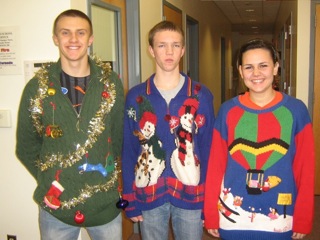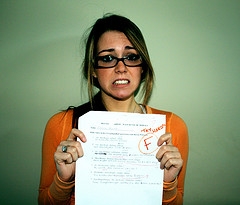Written by Nanci Young, Workplace Learning Connection
Kirkwood Community College
You can’t contemplate the future without considering the
impact of science, technology, engineering and math
in our everyday experiences, especially in our jobs. Students in high school will be facing far different workplace
demands than their parents. And,
our middle school and elementary school population need to be prepared for jobs
that don’t even exist today! The
34 school districts within the Grant Wood Area Education Agency Area 10, including
Solon Community Schools, are partnering with Workplace Learning Connection
(WLC) to not only ride the wave of STEM careers, but to get in front of the
demand by providing work-based learning opportunities for their students.
Area high school students are job shadowing in STEM careers
and participating in class-credit student internships at area STEM
businesses. Local professionals
employed in STEM careers are hosting worksite tours and going to elementary,
middle and high school classes to speak to students about their careers. To date, WLC has connected students to
STEM careers over 850 times this school year.
Chemistry teacher, Jennifer Brown, Kennedy High School,
explains why STEM education experiences are so important, “STEM careers are growing quickly and if we
don’t produce students to fill those positions, they will be lost to employees
outside the US. Students are often unaware of the number and scope of options
available to them, so it is important to increase their exposure. By working with WLC, we have access to
the large number of connections that they have developed with the community.”
Sarah K from Xavier High School talks about her job shadow experience
at St. Luke’s Hospital, “I think that it was really important for me to actually
see what an occupational therapist gets to do. I learned exactly what kind of
work the job entailed, what kind of training I would need, and what the market
looked like for those skills. This experience will definitely help me in
selecting my major in the next couple of years.”
Claire T, Linn-Mar
High School student, shadowed a physical therapist, “I learned about the different types of
physical therapy, and shadowed one kind.
It made me really interested to find out more about the rest! It has
interested me to take more science classes and keep pushing towards this career
path!”
Pete Kies, Lab Technician from Genencor International,
explains why he participates in work-based learning activities, “I enjoy my work
and I like being able to tell the kids that there are some cool jobs out there,
if you have the skills and the knowledge to qualify for them.”
STEM touches a wide variety of career fields, over 75 of
them explored this year through WLC’s job shadows, internships and events. These fields span five different pathways and include careers
like veterinarians and ag mechanics (Agriscience and Natural Resources), graphic
designers (Arts and Communications), accountants, computer engineers and web
designers (Business, Information Technology, Marketing and Management),
machinists, aerospace engineering, and skilled trades (Engineering, Industrial
and Technical Sciences), and dieticians, EMT’s and dermatologists (Health
Sciences).
The need for STEM career education opportunities continues
to grow.
This fall, Governor
Brandstad and Lt. Governor Reynolds commissioned a STEM Advisory Council to
grow Iowa’s commitment to bolstering STEM education, STEM innovation and to
better position Iowa’s young people and the state’s economy for the
future.
Workplace Learning
Connection plays a role in this initiative by providing STEM career experiences
to K-12 students and instructors in this area’s 7-county region.
To learn how to be a part of this wave
of education, innovation and economic development, go to
www.workplace-learning.org or
become a fan of WLC’s Facebook page,
http://www.facebook.com/pages/Workplace-Learning-Connection.




















